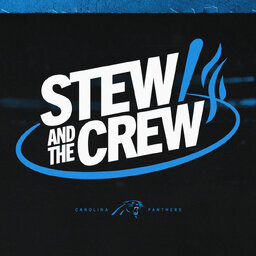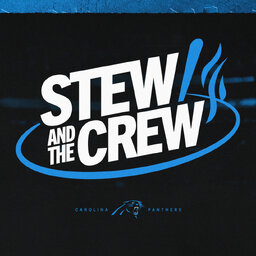Stew and the Crew | Rocket Ismail - Part 1
"Stew and the Crew" is hosted by Jonathan Stewart, the Carolina Panthers' all-time leading rusher, and Jeremy Kelley, Director of Legends Affairs. Together, they invite legendary guests to delve into the intricacies of the game and life after football. This week J-Stew sits down with former Panthers wide receiver, Rocket Ismail.
 Stew and the Crew
Stew and the Crew


